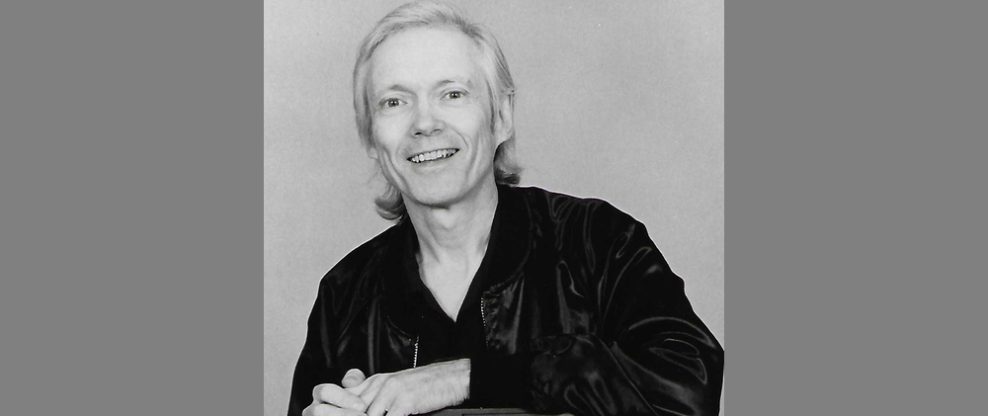VANCOUVER (CelebrityAccess) — Pioneering Canadian rock icon Chad Allan, a founding member of the legendary band The Guess Who and Brave Belt, the progenitor of Bachman-Turner Overdriver, died on November 21st. He was 80.
A cause of death was not provided, but Allan suffered a serious stroke in 2017 and had experienced health problems since.
A native of Winnipeg, Chad was born Allan Kowbel but took his stage name, Chad Allan, in tribute to a favorite 1950s singer, Chad Mitchell.
In 1960, Randy Bachman and singer Chad Allan began working alongside each other in Al and the Silvertones destined to become after several name changes one of the defining acts in Canadian rock.
By 1962, the band had changed its name to Chad Allan and the Reflections. Following the release two singles, “I Just Didn’t Have the Heart,” and “Tribute to Buddy Holly” on the Canadian-American label in 1962, the band signed with Quality Records of Canada in Toronto.
Over the next two years, Quality released several of their singles as Chad Allan and the Expressions that gained some local radio notice, but failed to impact elsewhere.
In late 1964, Quality Records released their cover of “Shakin’ All Over,” originally by UK’s Johnny Kidd & the Pirates, credited to “Guess Who?” as a publicity stunt to generate speculation that the single was by a British band working incognito. After the label revealed the band to be Chad Allan and the Expressions, “Shakin’ All Over” received widespread airplay nationally and reached #1 in Canada, #22 in the United States, and #27 in Australia.
Their second album, “Hey Ho (What You Do to Me!)” in late 1965 was credited to Chad Allan and the Expressions with “Guess Who?” displayed prominently
Among their follow-up hits in Canada were “Tossin’ and Turnin’,” “Hey Ho (What You Do to Me!),” “Believe Me,” and “Clock On The Wall.”
In the boldest stroke of his career— in late 1965, Randy championed the hiring of singer/pianist Burton Cummings from the Deverons–then growing in regional popularity–when pianist Bob Ashley left, Burton would share vocals with Chad Allan until early 1966 when Allan began to experience some voice challenges and left the band.
After leaving the Guess Who in 1970
Randy retreated briefly from the international music world to Winnipeg, producing several local acts, and sitting in on the CBC-TV country show “My Kind Of Country.”
He resurfaced months later to produce Chad Allan’s solo album. For the project, Randy recruited his 16-year-old brother Robbie, then still in high school.
After Neil Young helped Randy secure an American recording contract the completed Allan album was released in May 1971 as “Brave Belt” on Reprise Records.
The single “Crazy Arms, Crazy Eyes” made the Canadian charts, peaking at #35 in 1971, but missed the American charts completely.
When Reprise suggested that what had evolved into a band should be a quartet, Randy coaxed bassist/guitarist Fred Turner—then touring in Western Canada with his band, the D-Drifters—to be the fourth member. Originally playing guitar, Turner soon switched to bass which he’d often played in the D-Drifters.
While Chad Allan had sung lead for most of the tracks on the first Brave Belt album, Fred’s gin-and-tears vocals overwhelmed “Brave Belt Il,” released in 1972, giving the group a tougher musical direction which led to Allan leaving the group shortly after the sessions in which he appeared as a vocalist on only two songs.
After leaving Reprise, Brave Belt worked as a trio for the next 9 months playing low-paying, shit-can gigs in Canadian bars and high schools. A need for an overall directional change became obvious following a ho-hum first night of a four-night pub stint at Lakehead University in Thunder Bay, Ontario in late 1971. Chad Allan had left the previous week, and the band was still playing their country-flavored repertoire to an unresponsive audience.
Following his exit from Brave Belt, Allan pursued a solo career, releasing his debut solo album “Sequel” in 1973.
Allan was also selected to play the lead character in a musical adaptation of the Old English poem Beowulf and subsequently released an album of the same name in 1974.
In 2015, Chad was inducted as a Member of the Order of Manitoba for his contribution to Canadian music.





























